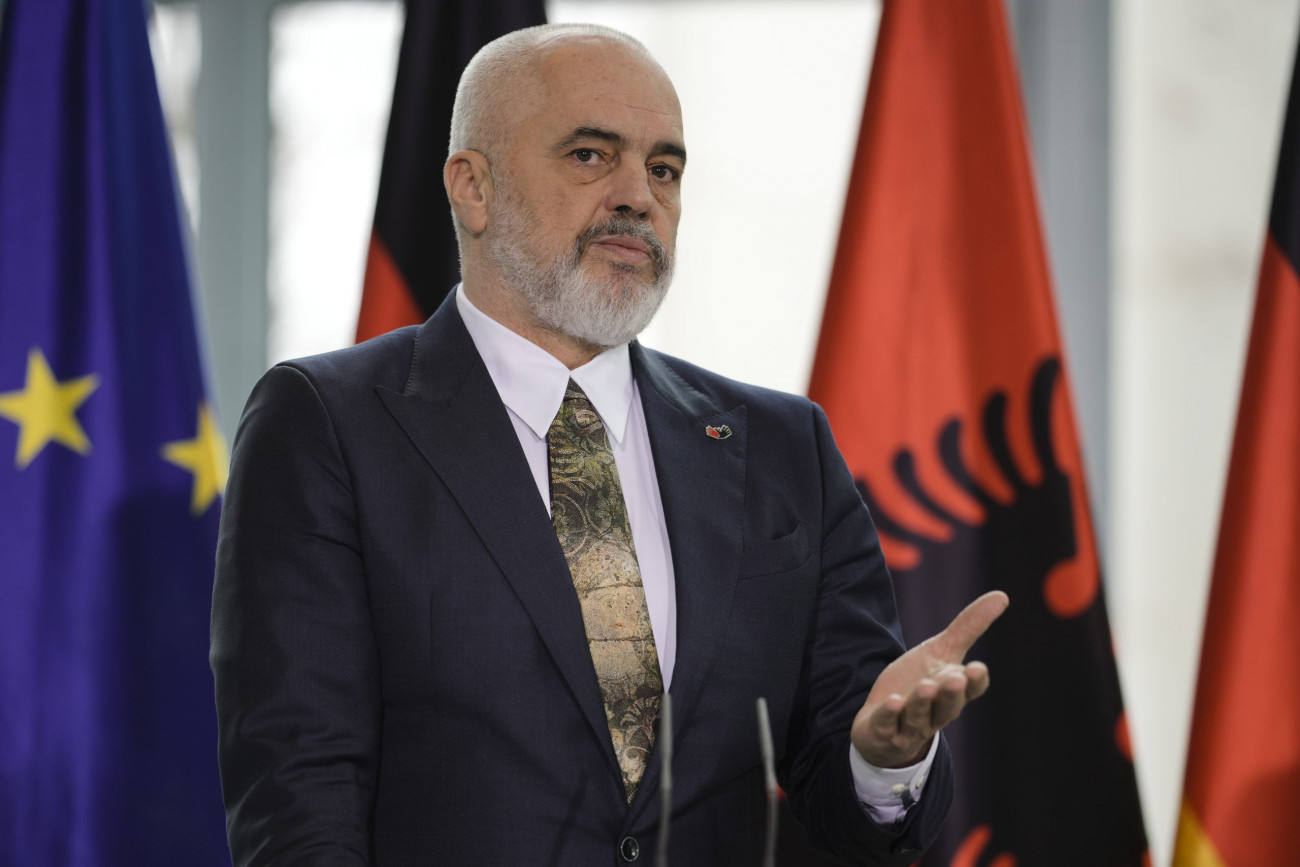Edi Rama calls for repeal of Greece’s wartime law in interview with Ta Nea

Albanian Prime Minister Edi Rama, in an interview with Greek newspaper Ta Nea, called for the repeal of Greece’s wartime law against Albania, stating that it remains a legal anomaly and an obstacle to fully normalized relations between the two countries.
Why is this important: The wartime law, established by Greece through a royal decree on November 10, 1940, was enacted after Italy declared war on Greece and launched an invasion through the then-annexed Albanian territory. This decree categorized Albanians as enemy nationals, leading to the conservatory confiscation of their properties across Greece, which were placed under state administration. Although the Greek government decided to lift the law on August 28, 1987, it was never officially published in the Government Gazette, leaving its legal status ambiguous and its effects unresolved.
Context: Relations between Albania and Greece have experienced periodic tensions, often centered around historical disputes, minority rights, and territorial issues. Key unresolved matters include the wartime law, which Albania argues remains a legal obstacle in bilateral ties, the maritime border agreement, which both countries agreed to refer to the International Court of Justice (ICJ) but has yet to be finalized, and the controversy surrounding Himarë, which resurfaced following the arrest of Fredi Beleri, an controversial ethnic Greek politician elected as mayor of Himarë, after being caught in flagrante for vote-buying.
Despite these long standing disputes, recent weeks have shown positive signs of improvement in relations between the two countries. Against this backdrop, Rama’s statements in Ta Nea reaffirm Albania’s stance on these key issues, signaling Tirana’s expectation for concrete progress in resolving the legal and diplomatic challenges that remain outstanding.
What did Rama say. Speaking about this issue, Rama emphasized:
“We give great importance to putting an end to this absurd law of war between us. Because, as you know, legally we are at war.”
When the journalist noted that the law had been revoked in 1987 by then-Greek President Karolos Papoulias, Rama disagreed:
“No, it has not been revoked, but it must be revoked. What actually happened is that we signed a treaty of friendship. Yes, but the law is still in force. So, we have a treaty that makes us very close friends, while legally, we are at war. This is the somewhat schizophrenic relationship we have as neighbors.”
Beleri case & maritime border: The interview also touched on the case of Fredi Beleri, the elected mayor of Himara who was sentenced to two years in prison for vote-buying. The case caused a diplomatic rift between the two countries, with Greek officials repeatedly calling for his release. However, Rama downplayed the impact of the case on overall bilateral relations:
“Relations are fine now. They can always be much better. They were bad for a while, due to an issue that was very important for the Greek side but, for us, was just one among many issues. But yes, now we are fine.”
Additionally, Rama addressed the maritime border issue, which has been stalled for years despite an agreement between Albania and Greece to refer the matter to the International Court of Justice (ICJ) in The Hague. When asked why the case had not moved forward, Rama responded:
“Something else got in the way. I think the moment was lost because we had a very good start when Kyriakos [Mitsotakis] came to power. It was a very good start. We had a shared perspective on our long history and the importance of our relationship, and naturally, I wanted to move forward with some unresolved issues.”
Although Rama did not specify what interrupted the process, he insisted that Albania and Greece must resolve all historical issues, including the maritime border dispute and the wartime law.
Next steps: Despite tensions over these unresolved issues, Rama expressed optimism that dialogue will continue. He stated that both governments need to work together without being distracted by external factors that have delayed progress.


